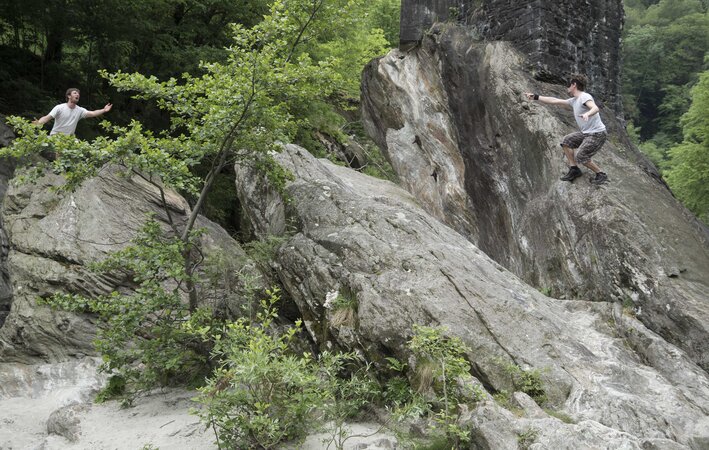13
Jun 2019
#6 Raum
Theatre of sounds. Theatrical and territorial acoustic spaces
Schweizerische Gesellschaft für Theaterkultur (SGTK)
The workshop focuses on the sound dimension in theatrical practices and experiences: from corporeal knowledge to the condensation of space-time, from the fundamental interactions with the present-time to the anthropological composition of identity bonds.
The sound dimension of the theatrical experience has always been central in Western performance culture, strongly tied to an important tradition of prose that has often defined its main development but has not been adequately taken into account with respect to its influences on creative and dramaturgical processes. A research project on sounds in the theater is still in its infancy, but it is finding fertile ground at the Accademia Teatro Dimitri both in reflections on the soundscape of physical theater (Quadri, 2017) and through projects in preparation investigating comedy, music, and sound effects, that the musicologist Anna Stoll Knecht will launch in 2019 («Music and Clowning in Europe, 20th-21st Centuries»).
The workshop is a proposal of the Swiss Association for Theatre Studies (SATS) in collaboration with the Education and Training Department of SUPSI and the Accademia Teatro Dimitri, and with the support of the Swiss Academy of Human and Social Sciences.
June 13th, introductory event
Welcome by the Swiss Association for Theatre Studies (Paola Gilardi, co-chair of SATS)
Launch of the theme: «How does the region resonate in theatrical spaces?»
Presentation of three case studies and two research projects:
- Il rumore lontano. A regional reading exercise of the Canton Ticino through sound (2018)
- Centovalli-Centoricordi (2013)
- Re Cervo (2014, performance result of the research project «SPASS - Synergies between Artistic Practices and Sustainable Shifts»)
- groove feeling - Artistic scientific research on the groove phenomenon (in English)
- Music and Clowning in Europe, 20th-21st Centuries (in English)
June 14th, workshop
Contributions are welcome from all fields of research and art in English or in the three national languages (Italian, French, German). To submit a contribution proposal to the workshop, an extended abstract with a minimum length of 1500 and a maximum of 2000 words is required. Contributions will be submitted to a peer review process.
Through the Openspace methodology, the participants are invited to reflect on the critical aspects and opportunities connected to the theme: «How does the region resound in theatrical spaces?»
Those who presented the abstract with favorable feedback of their peers will participate at the Openspace.
Keynote Speakers
- Antonella Astolfi, teacher of voice, Accademia Teatro Dimitri
- Oliviero Giovannoni, musician, composer, teacher of rhythm, Accademia Teatro Dimitri
- Sebastian Matthias, researcher, choreographer, and associate artist at K3 - Zentrum für Choreographie ; Tanzplan Hamburg in Kampnagel
- Anna Stoll Knecht, musicologist and researcher, Jesus College, University of Oxford / Accademia Teatro Dimitri

